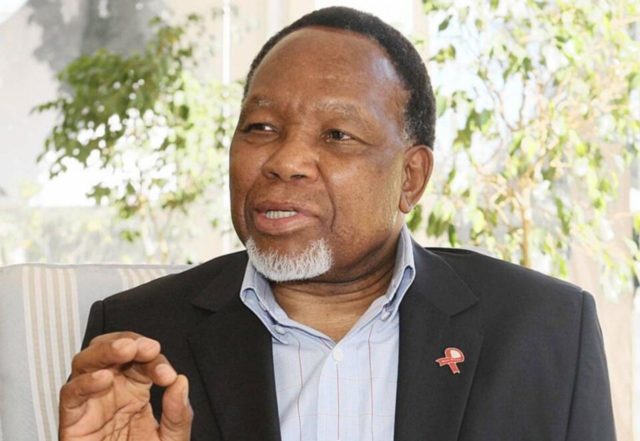Former president Kgalema Motlanthe says no public representative should go into the office when they have been guilty of betraying the trust of South Africans.
FORMER president Kgalema Motlanthe has lamented how the law enables top senior leaders facing prosecution to get off scot-free.
He was speaking at a webinar hosted by the Centre for Development and Enterprise as he reflected on the ANC’s history and the state of South Africa over the next five years.
To drive his point home, Motlanthe referred to the recent court case of former social development minister Bathabile Dlamini.
Last month, Dlamini was sentenced to four years in prison with an option of paying a R200,000 fine.
This comes after she was found guilty of perjury after lying under oath as she denied she was to blame for a Sassa contractual debacle that had affected the payment of grants to more than 17 million South Africans in 2017.
“In the case of Bathablie Dlamini, once again the law creates an exit pass because the law says if you are convicted for any offence with an option of a fine, then you have no criminal record.”
“And that’s how you recall in the early days of the travel gate, that’s how most of them remained in Parliament simply because they were sentenced to less than six months imprisonment with an option of a fine. They all paid the fines and continued.”
“At the level of ethics and morality, no public representative should go into the office when they have been guilty of betraying trust (of South Africans). But the law as I say, creates this exit pass.”
Motlanthe also highlighted that he believes that ANC members implicated in corruption through the State Capture report will face the full might of the law.
“Yes, I’m confident that this will happen because it is the law. It is not dependent on the ANC’s likes and dislikes. It’s the law.
“So the law will be applied effectively.”
But despite its commitment to ensure that its step aside resolution adopted in Nasrec almost five years ago comes into full effect, the ruling party has found itself at odds as some of its members have challenged it.
But Motlanthe was resolute in his views.
He emphasised the ruling party’s constitution served as a guideline to how unscrupulous members have to be dealt with.
According to Motlanthe, the ANC has a few instruments that would enable it to deal with the issue of corruption.
“The Zondo report will in no doubt result in the prosecutions of those fingered in the report.”
He said: “As far as the ANC is concerned, once they (members) are charged, the ANC already has a step-aside rule that they step aside from their responsibilities until their names are cleared in the court of law. The ANC’s constitution states that if you are convicted by the court of law for corruption or any serious offence, the ANC constitution then prescribes that you are no longer eligible to be a member therefore you stand expelled from the ANC.”
Reflecting on previous discussions with national executive committee (NEC) members, Motlanthe said unlike the commitment given at the elective conference in 1992 by members to refrain from acts of corruption, it was now business as usual.
“I recall in one commission we were discussing how ANC members should be trained and assisted on how to deal with gifts because people offer gifts and ask for no favour in return only to come back a few months down the line and ask for a favour. If you feel indebted, then you feel obliged,” he said.








